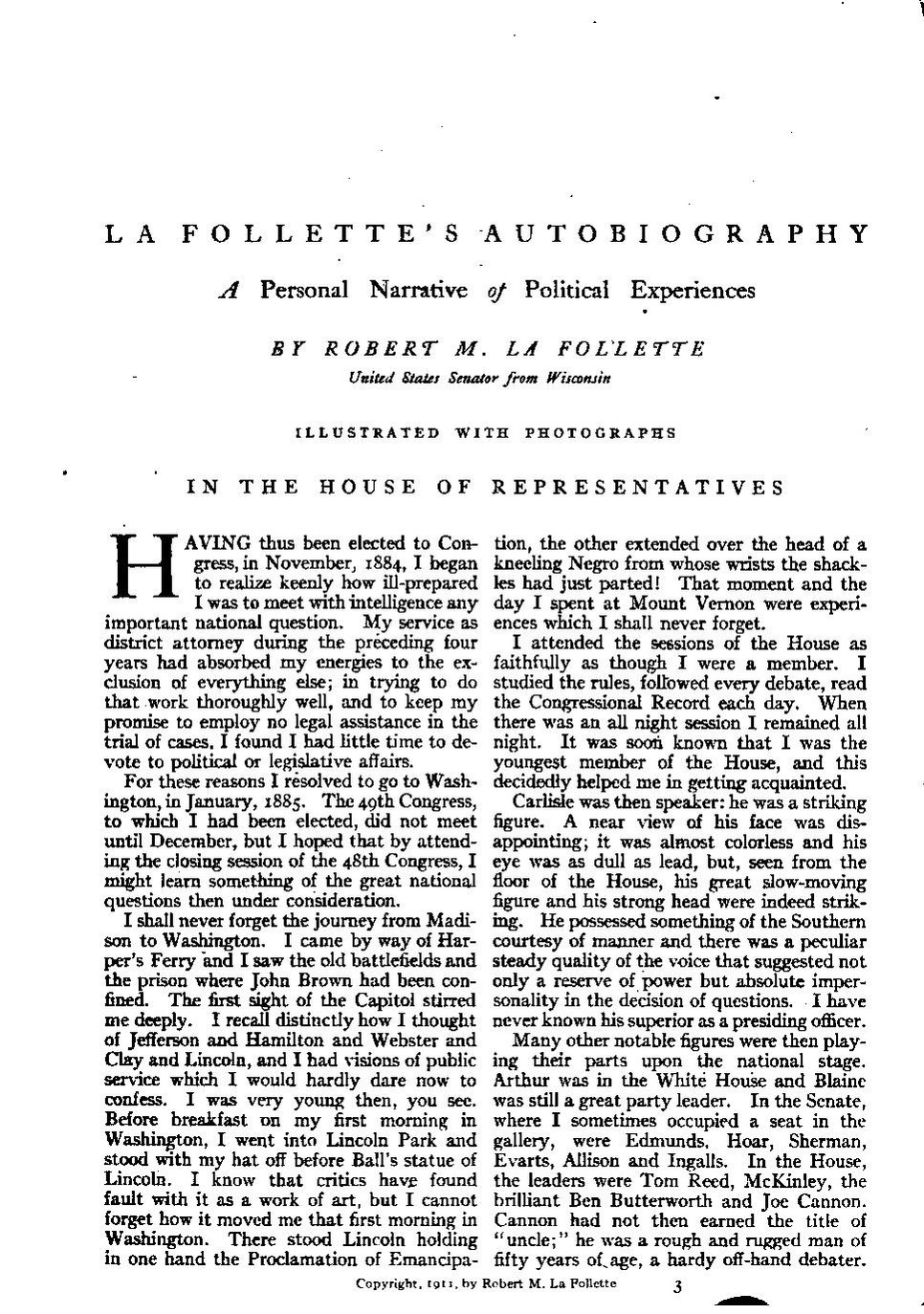LA FOLLETTE'S AUTOBIOGRAPHY
A Personal Narrative of Political Experiences
BY ROBERT M. LA FOLLETTE
United States Senator from Wisconsin
ILLUSTRATED WITH PHOTOGRAPHS
IN THE HOUSE OF REPRESENTATIVES
HAVING thus been elected to Congress, in November, 1884, I began to realize keenly how ill-prepared I was to meet with intelligence any important national question. My service as district attorney during the preceding four years had absorbed my energies to the exclusion of everything else; in trying to do that work thoroughly well, and to keep my promise to employ no legal assistance in the trial of cases. I found I had little time to devote to political or legislative affairs.
For these reasons I resolved to go to Washington, in January, 1885. The 49th Congress, to which I had been elected, did not meet until December, but I hoped that by attending the closing session of the 48th Congress, I might learn something of the great national questions then under consideration.
I shall never forget the journey from Madison to Washington. I came by way of Harper's Ferry and I saw the old battlefields and the prison where John Brown had been confined. The first sight of the Capitol stirred me deeply. I recall distinctly how I thought of Jefferson and Hamilton and Webster and Clay and Lincoln, and I had visions of public service which I would hardly dare now to confess. I was very young then, you see. Before breakfast on my first morning in Washington, I went into Lincoln Park and stood with my hat off before Ball's statue of Lincoln. I know that critics have found fault with it as a work of art, but I cannot forget how it moved me that first morning in Washington. There stood Lincoln holding in one hand the Proclamation of Emancipation, the other extended over the head of a kneeling Negro from whose wrists the shackles had just parted! That moment and the day I spent at Mount Vernon were experiences which I shall never forget.
I attended the sessions of the House as faithfully as though I were a member. I studied the rules, followed every debate, read the Congressional Record each day. When there was an all night session I remained all night. It was soon known that I was the youngest member of the House, and this decidedly helped me in getting acquainted.
Carlisle was then speaker: he was a striking figure. A near view of his face was disappointing; it was almost colorless and his eye was as dull as lead, but, seen from the floor of the House, his great slow-moving figure and his strong head were indeed striking. He possessed something of the Southern courtesy of manner and there was a peculiar steady quality of the voice that suggested not only a reserve of power but absolute impersonality in the decision of questions. I have never known his superior as a presiding officer.
Many other notable figures were then playing their parts upon the national stage. Arthur was in the White House and Blaine was still a great party leader. In the Senate, where I sometimes occupied a seat in the gallery, were Edmunds, Hoat, Sherman, Evarts, Allison and Ingalls. In the House, the leaders were Tom Reed, McKinley, the brilliant Ben Butterworth and Joe Cannon. Cannon had not then earned the title of "uncle;" he was a rough and rugged man of fifty years of age, a hardy off-hand debater.
